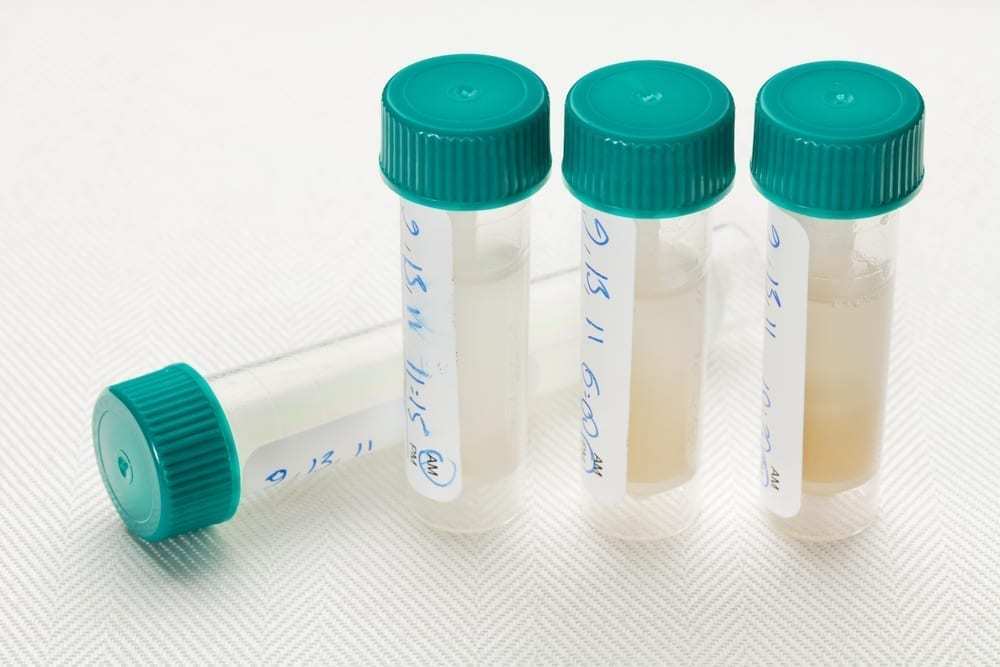
Saliva Testing
Accurate, rapid testing for the novel coronavirus (SARS-CoV-2) is crucial to controlling the COVID-19 pandemic. In previous installments of this blog series, we covered the real-time reverse transcription polymerase chain reaction (rRT-PCR) test, the serology test, and the antigen test for the novel coronavirus.
The rRT-PCR assay sample is gathered by nasal swab, run on a QPCR machine and can diagnose an active infection. Serology testing, which scans blood samples for antibodies to the virus, can indicate a previous infection — and potential immunity. Antigen testing detects antigens in samples collected via nasal swab, indicating an active coronavirus infection. Each test has its own advantages and limitations.
rRT-PCR tests are the gold standard, but they have poor sensitivity for early infection detection and are inconsistent in serial testing throughout the course of the infection. The nasopharyngeal swab used in PCR and antigen testing (which is experiencing a global supply chain crisis) can be invasive and uncomfortable, thus limiting compliance for repeat testing. The swab can also trigger coughing and sneezing, which puts healthcare workers at increased risk. The key limiting factor in accurate testing using nasal swab collection is the necessity of sample collection by a trained professional. These challenges are magnified in lower-income locations where the population lacks reliable access to testing components or healthcare.
The ideal SARS-CoV-2 test must be sensitive to mild and asymptomatic infections, so that it can be used to identify the need for self-isolation and reduce viral transmission. It must also be consistent and have a high level of accuracy, which will help to monitor disease progression and aid in clinical decisions. The ideal test must be scalable to large numbers of people so that it can shape public health policies. Finally, a more reliable and less resource-intensive sample collection method is needed — ideally one that could be self-administered. These qualities would enable the safest possible path forward to large-scale testing.
Saliva Testing for SARS-CoV-2
According to a study from Yale School of Public Health called “Saliva is more sensitive for SARS-CoV-2 detection in COVID-19 patients than nasopharyngeal swabs,” saliva-based testing could be a solution. Saliva has shown comparable sensitivity to nasal swabs in the detection of respiratory pathogens — including other coronaviruses — in past studies, and saliva sample collection is minimally invasive and can be reliably self-administered. Saliva samples are then sent to the lab to undergo the rRT-PCR assay.
The study tested nasopharyngeal and saliva samples from two cohorts: confirmed COVID-19 patients and self-collected samples from asymptomatic (but high- or medium-risk) healthcare workers on COVID-19 wards. Prior to the study, no rigorous evaluation had been performed comparing the two testing methods on inpatients. The researchers found that SARS-CoV-2 detection sensitivity was greater with saliva samples than with patient-matched nasopharyngeal samples. Saliva yielded both greater detection sensitivity and greater consistency in test results throughout the course of the infection.
The Experiment
The team of 50 Yale researchers collected samples from 44 inpatient study participants with a range of disease severity. Of those 44 patients, 43 percent were in the ICU, 23 percent were intubated and 10 percent eventually died from the disease. Over the course of the study, 121 self-collected saliva samples or healthcare-administered nasopharyngeal swabs were collected from the cohort.
From all of the positive samples tested, the researchers found that virus titers from saliva were about five times higher than those of nasopharyngeal swabs. In eight matched samples, the virus was detected in the saliva but not in the nasopharyngeal swabs.
Overall, temporal diagnostic testing from nasal swabs is reported to be variable. Thus, the team tested longitudinal nasopharyngeal samples and saliva samples to see which sample type provided more consistent results. Virus titers generally increased in both nasal and saliva samples following the reported date of symptom onset. There were five instances in this study in which the nasal swab was negative at the first test and positive at the next test — but no instances where this change in test results occurred when measuring by saliva. This is important because two consecutive negative tests are needed to make discharge decisions. The results suggest that saliva is more consistent for monitoring temporal changes in infection.
Saliva was also more consistent as a self-sampling method among 98 asymptomatic healthcare workers included in the study’s second cohort. During the experimental period, the team collected saliva samples or nasal swabs an average of once every three days. Titers from asymptomatic healthcare workers’ saliva were lower than for symptomatic patients. The data collected supports the fact that saliva would be more sensitive for detecting presymptomatic and asymptomatic infections, but a larger sample is needed to be certain.
Study Implications
Saliva testing provides more consistent results during extended hospitalization and recovery, and it can be more sensitive than testing nasopharyngeal swabs. Using saliva for diagnostic tests also negates the need for direct healthcare worker–patient interaction, as self-sampling is simple.
If saliva were validated for detection of subclinical infections, it would be a game-changer for remote patient sample collection as well as surveillance of healthcare workers.
The authors of the study have called for immediate validation of the results and implementation of saliva diagnostics in clinical labs, and a saliva assay has already been granted emergency use authorization.
Are you looking for a CRO to assist with your preclinical or clinical drug development related to the novel coronavirus or COVID-19? QPS has CLIA-certified and GLP-compliant laboratories ready to fast-track your novel coronavirus and COVID-19 RT-qPCR/QPCR and Serological Assays and vaccine development programs. Since 1995, QPS has provided discovery, preclinical, and clinical drug development services. An award-winning leader focused on bioanalytics and clinical trials, QPS is known for proven quality standards, technical expertise, a flexible approach to research, client satisfaction, and turnkey laboratories and facilities. For more information, visit www.qps.com/coronavirus or email [email protected].





